China has taken strong and unprecedented measures to safeguard Hubei Province, as well as its capital city Wuhan, with focal attention paid to containing the spread at communities and treating the patients.
Amid improving signs, community workers and doctors in the country keep up the fight against the coronavirus epidemic.
WUHAN, Feb. 29 (Xinhua) -- Resting in his bedroom, Chen Bin, who was diagnosed with the novel coronavirus on Jan. 28, is confident that, like him, more will recover in the following days.
Chen, from the city of Suizhou about 120 km from Wuhan, the epicenter of the outbreak, suffered from mild conditions and was discharged from hospital on Feb. 20. He is now in quarantine at his home.
"Around two weeks ago, we saw more doctors from outside the province as well as added beds, and our confidence grew," Chen recalled.
A total of 39,002 patients of the novel coronavirus disease (COVID-19) had been discharged from hospital after recovery by the end of Friday, Chinese health authority said Saturday.
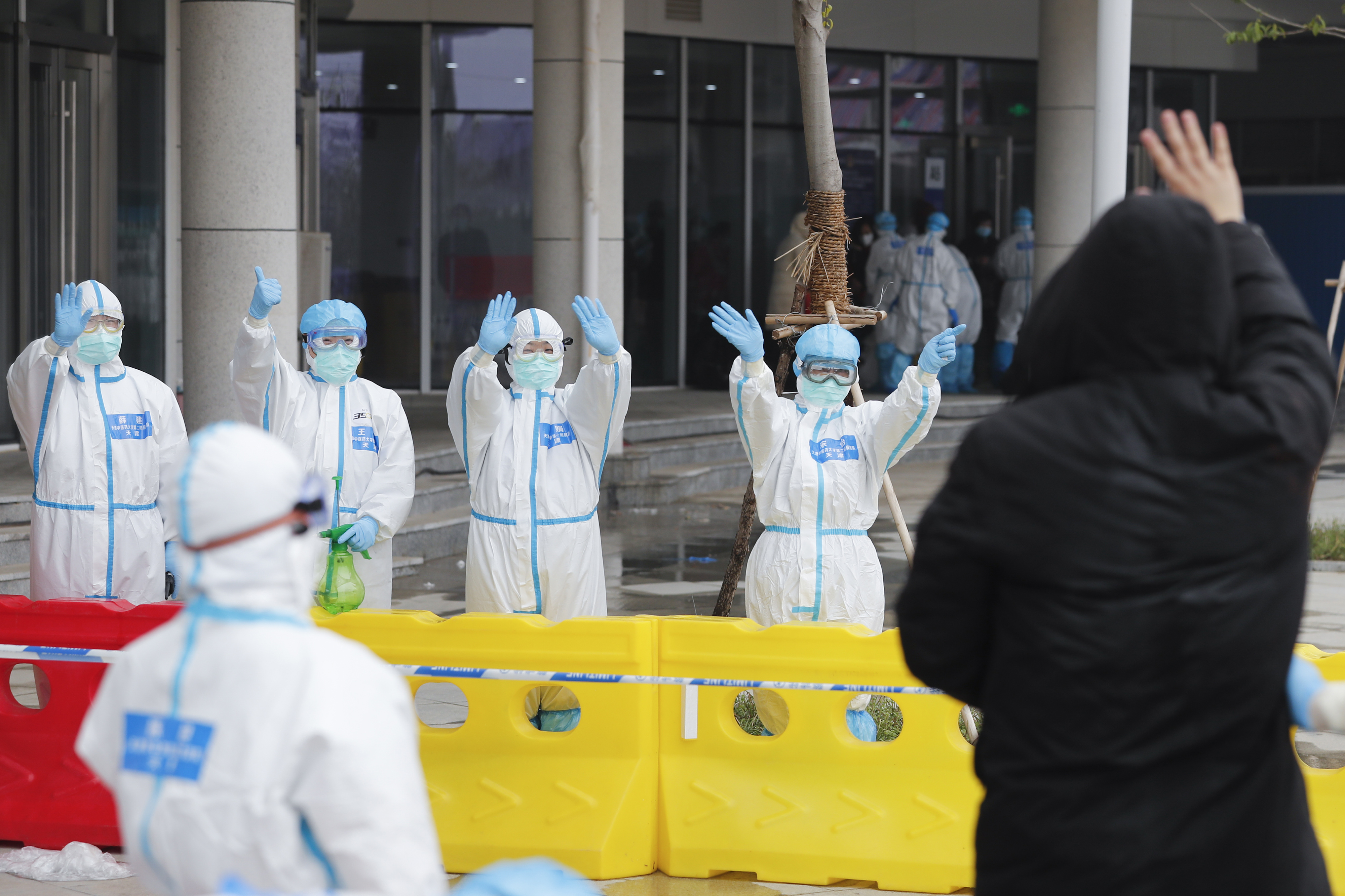
A recovered patient (R) waves to medical staff of the temporary hospital, which applies traditional Chinese medicine treatment to patients, in Wuhan. (Xinhua/Shen Bohan)
China has taken strong and unprecedented measures to safeguard Hubei Province, as well as its capital city Wuhan, with focal attention paid to containing the spread at communities and treating the patients.
HARD WORK
Local communities help in keeping patients in quarantine, arranging transport to hospitals, patrolling the community and tracking residents' health, among other things, said Lei Lihua, Party secretary of Shenyang community in Wuhan.
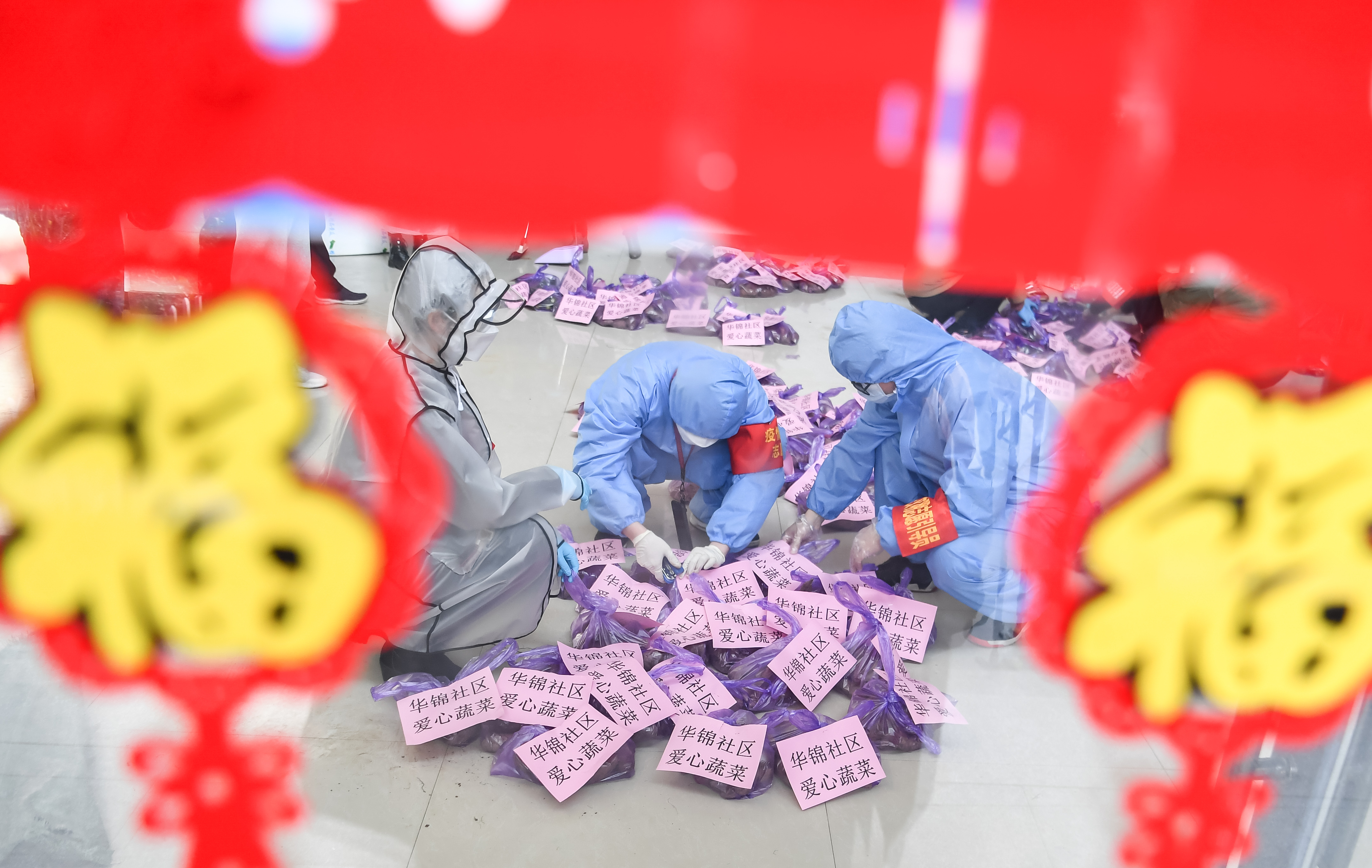
Volunteers pack vegetables for residents of Huajin community in Wuchang District of Wuhan. (Xinhua/Cheng Min)
Wuhan has built 16 temporary hospitals with more than 13,000 beds, which were converted from gyms, exhibition centers and other facilities to cope with a shortage of beds amid the coronavirus outbreak, according to the National Health Commission.
"Whenever a bed is available in the temporary hospitals, we get contacted and then we inform patients in our quarantine site to get ready for transport," Lei said.
Lei has been on standby around the clock for phone calls from the hospitals and residents since Jan. 23. To her comfort, the community has not seen any deaths at home from the disease.
The process is getting faster. It took about one week for a resident to be hospitalized at first, and gradually it took two or three days, and then two to three patients can be sent for treatment each day, Lei said.
In recent days, the community has not seen any new confirmed cases.
As of Friday, temporary hospitals in Wuhan have received a total of 12,000 patients, and over 7,600 patients are now being treated, with around 5,000 spare beds.
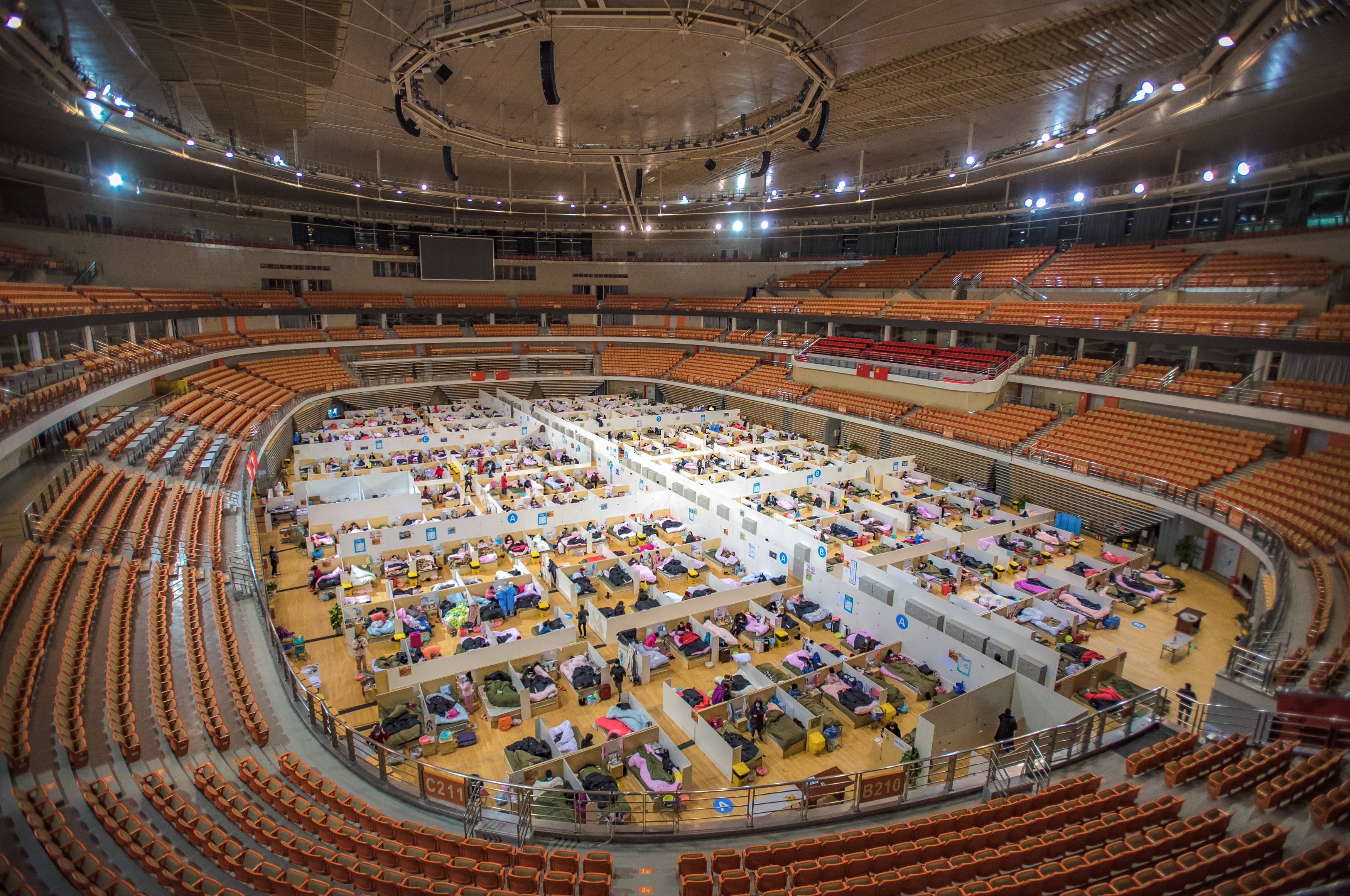
The interior view of the temporary hospital converted from Wuhan Sports Center in Wuhan. (Xinhua/Xiao Yijiu)
Chen said his hospital in Suizhou also faced bed shortage in the beginning as the hospital crammed one extra bed into a room with three beds, but later, the room was changed back as the situation improved.
When Chen was being treated, his family was quarantined at home. Local community workers have been delivering daily necessities for them.
"When I ordered cooking oil from the workers, they even asked which brand we want to buy," said Zhang Xiyang, Chen's wife.
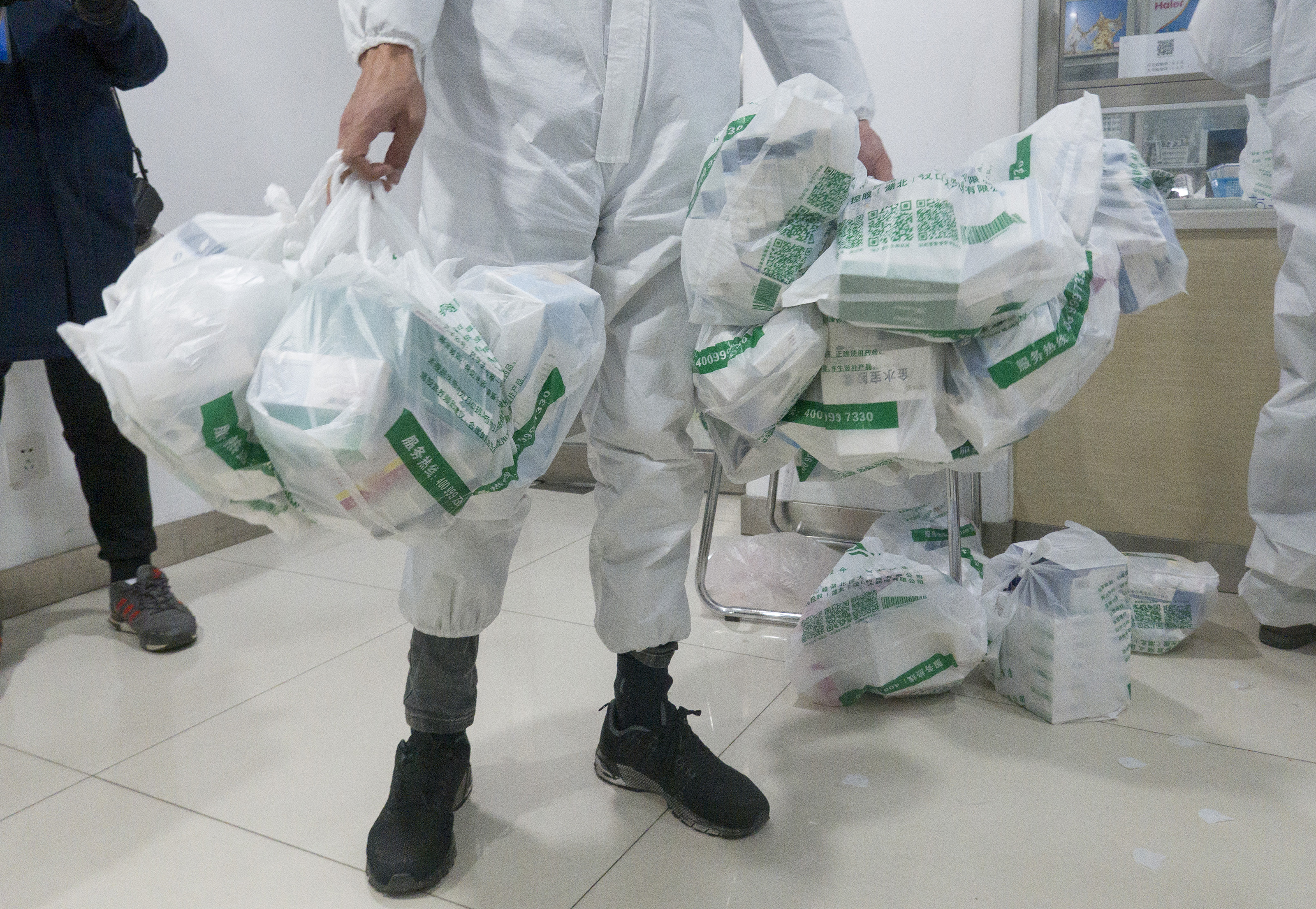
A community worker picks up medicines for sick residents at the chain store of Hankou pharmacy in Huangshi Road of Wuhan. (Xinhua/Cai Yang)
"In the recent week, communities in the city have been tightening management," said Chen Yonghong, head of Liushutang community, where Chen Bin lives.
The community with around 7,400 people saw a second case besides Chen Bin and closed all its 41 exits on Feb. 20. Now all the supplies are ordered and delivered by the community workers.
The community assigns one person at each exit, patrolling from 7:00 a.m. to 10:00 p.m.
"It's repetitive work, but we should never let down our guard," Chen said, "It's a bottom-line we need to keep to prevent the disease from spreading."
WE DO NOT RETREAT
As of Feb. 21, over 40,000 medical personnel, including military medics, have joined the fight against the coronavirus in Wuhan from across the country.
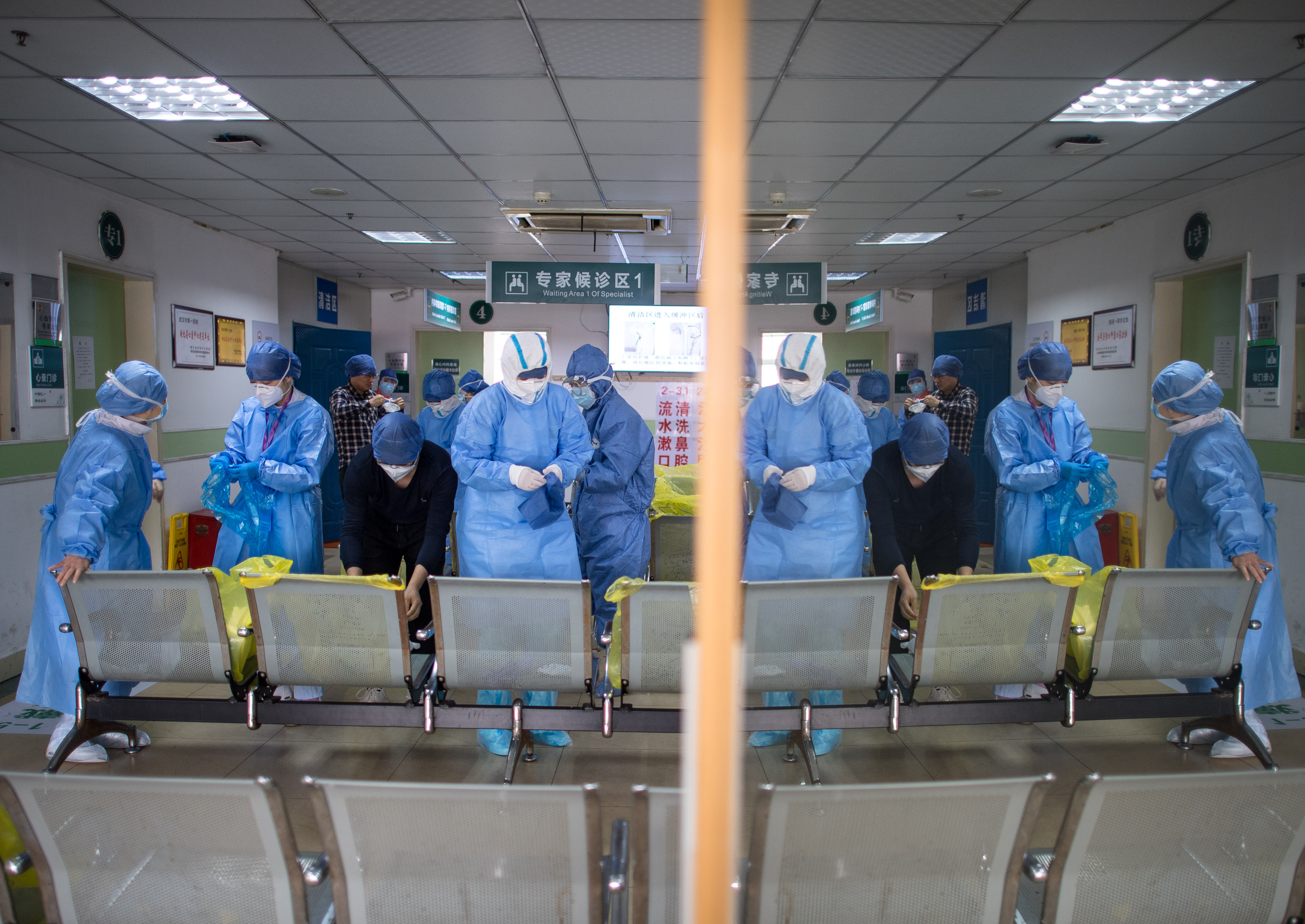
Medical workers wear protective suits and equipment before entering the isolation ward at Wuhan No. 1 Hospital in Wuhan. (Xinhua/Xiao Yijiu)
The teams have been innovating ways for treating patients in critical and severe conditions.
"We divide the patient area into green, yellow and red zones to treat patients in different conditions for improving efficiency," said Kang Yan, who heads the medical team from West China Hospital in southwest China's Sichuan Province.
Over 50 percent of the 137 patients with critical conditions have seen improvements and been transferred to temporary hospitals where patients with mild symptoms are treated, Kang said.
In the temporary hospitals in Hanyang District in Wuhan, the medical team from east China's Shandong Province has set up social media groups for patients to receive psychological counseling.
"Our nurses made paper cranes and wrote encouraging words on them to hang on the beds and hallways, and sometimes we play music to help people relax," said Lyu Yongtao, head of the Shandong team.
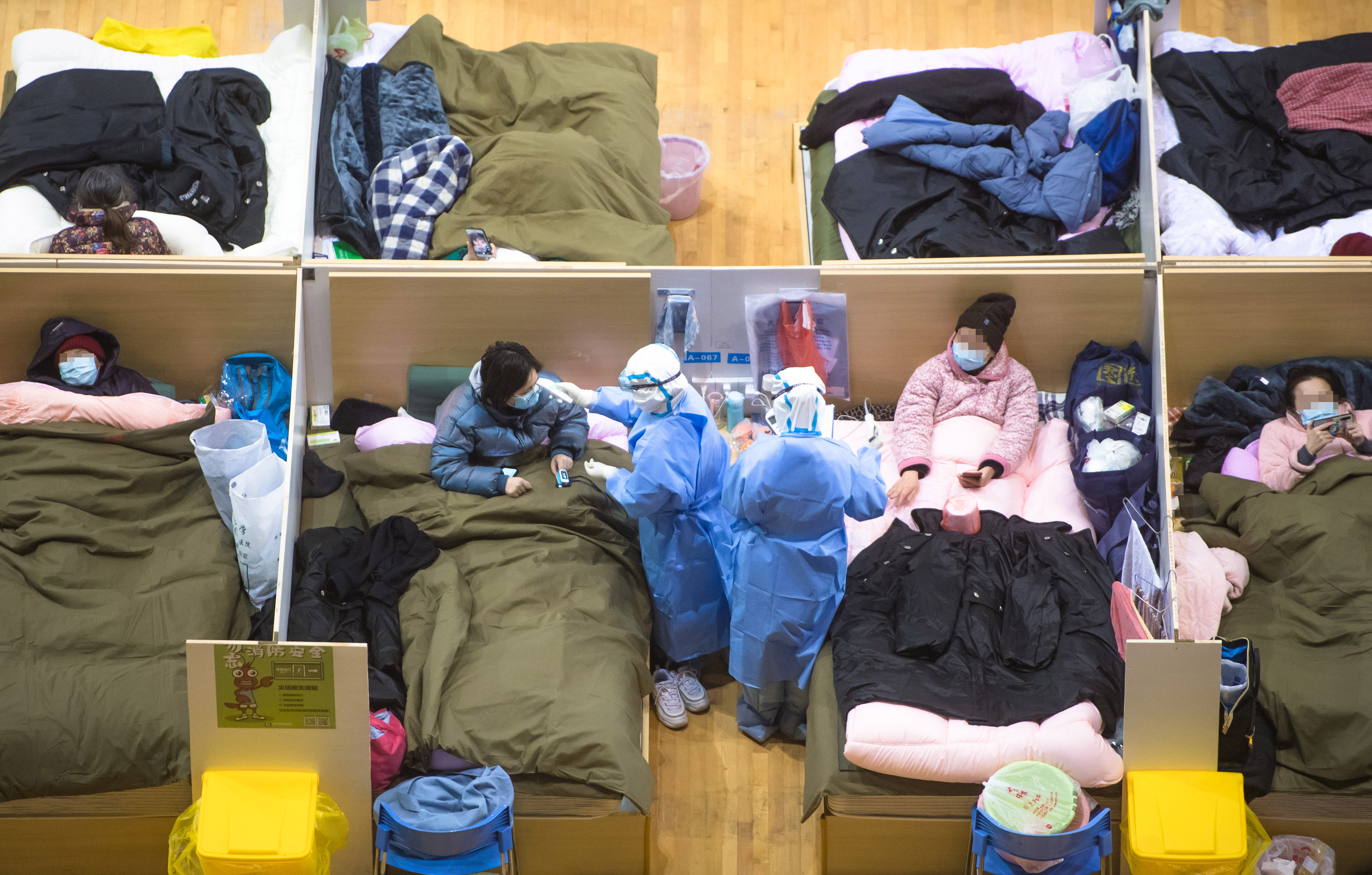
Medical staff members from Jiangsu Province examine patients at the temporary hospital converted from Wuhan Sports Center in Wuhan. (Xinhua/Xiao Yijiu)
In the city of Jingmen, the medical team from east China's Zhejiang Province built an intensive care unit (ICU) in the local hospital in 24 hours for treating patients in critical conditions.
One ICU needs over 100 people to keep it continually running, and the team works with the local hospital staff to offer around-the-clock care for patients there.
In half a month that the Zhejiang team arrived in the city, almost all the patients with severe and critical conditions have received treatment, according to Liu Limin, deputy head of the Zhejiang team to Jingmen.
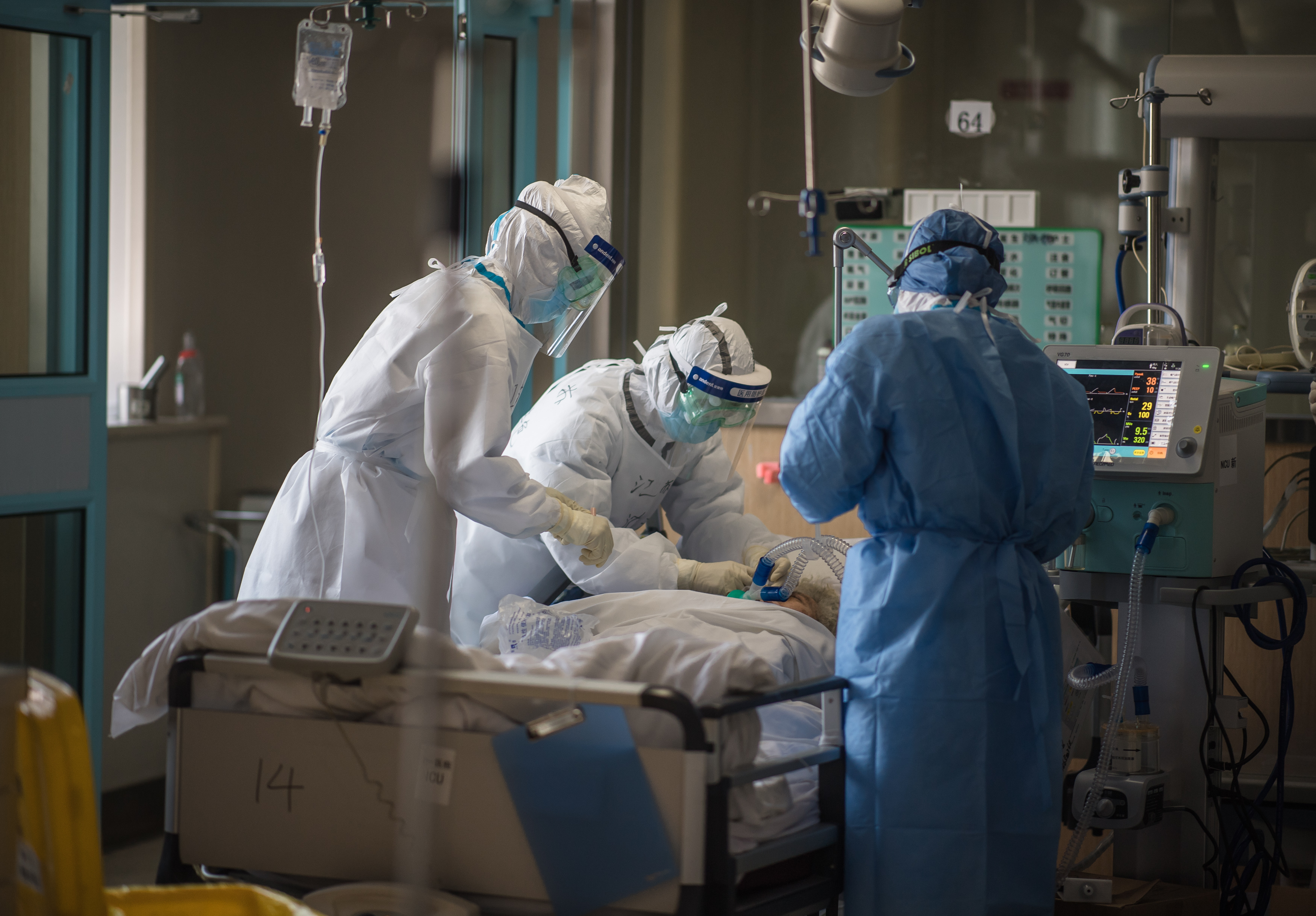
Medical staff members from Jiangsu Province work at an ICU ward of the Wuhan No. 1 Hospital in Wuhan. (Xinhua/Xiao Yijiu)
"We are here to handle tough conditions," Liu said. "And we will not retreat if the coronavirus is not subdued." Enditem
(Reporting by Peng Peigen, Yu Pei, Yue Wenwan, Liao Jun, Liang Jianqiang, Li Wei, Lu Huadong, Yu Yu, Xiao Yijiu, Cai Yang; Video reporters: Yu Guoqing, Rao Rao, Wang Siban, Pan Zhiwei; Video editor: Li Ziwei)



